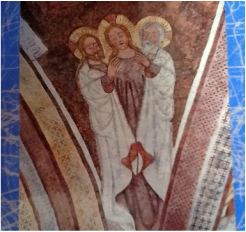 This week we celebrate the Feast of the Holy Trinity. Though we are in the midst of a series of Sunday feasts from Pentecost to Corpus Christi (next week) in our liturgical calendar we have actually gone back to Ordinary Time. The word ‘ordinary’ derives from the word ‘ordinal’ or counted. Even if we think of ‘ordinary time’ as the time between feasts, there is nothing ordinary about this time. Time is never simply ordinary. Even though we live most of our lives in what seems nondescript, the very mysteries we have been celebrating from Easter through the Ascension and Pentecost are so exquisite that to forget that we live in these mysteries our entire lives is truly to have missed the point. As Christians we live in light of the resurrection of Jesus. Every aspect of our lives is permeated with the presence of God especially through the reception of the sacraments. Jesus, the Son of God, died and rose, leaving us His Holy Spirit to empower and guide us home to Heaven where God, Three in One, reigns in glory forever. On the Feast of the Holy Trinity we are reminded that our God has not left us alone to figure out the way home to Him, but through the mystery of the Trinity, leads us each step of the way, every day of our lives. There is nothing ordinary about that at all. No matter the length of our days, from birth to death we are given various gifts which help us to endure many challenges, to share in many joys, and to know God’s love. Since most of life can seem routine it is easy to get caught up in the things we have to do such that we forget to bring God into it with us or to find Him here in our midst. The Feast of the Holy Trinity reminds us that from the beginning of time the Father meant for us to enjoy everything He has made. He gave us the whole of creation: from the very stars which inhabit the cosmos for us to gaze at in wonder and awe to the green grass under our feet, God gave us every created thing for us to enjoy and to care for. In addition to that which is tangible, He also gave us the gift of freedom. Given that we were created with that gift, and given that we did abuse it, God gave the greatest gift, which is the gift of His unconditional love. In other words, He gave us the gift of His mercy and compassion, which means that He will never stop forgiving us because His love has no end. Therefore, the Father knew He would send the Son as a gift of that mercy and forgiveness so that we might have redemption. The Son came into the world and then died, rose, and ascended in the act of saving us, leaving us His Holy Spirit to guide us home.  The Feast of the Holy Trinity sums up these mysteries because it reminds us that we are forever in the mind and heart of the Father, Son, and Holy Spirit. The One God has surrounded us with such love that we are never alone no matter what our circumstances or our choices. Life therefore is never ordinary because we have the Triune God with us always. Every mystery of His love surrounds us daily and is present with every beat of our heart. The people who lived in Old Testament times seemed to have a really good grasp of the reality that everything they had was a gift. They seemed a bit more attuned to realizing that every breath they took depended on God. Being human, however, sometimes they needed to be reminded of this fact. In the first reading on Sunday, we hear how Moses explained the greatness of God’s gifts to the people. Moses said: “Ask from one end of the sky to the other: Did anything so great ever happen before? Was it ever heard of? Did a people ever hear the voice of God speaking from the midst of fire, as you did, and live? Or did any god venture to go and take a nation for himself from the midst of another nation…?” (Deuteronomy 4:32-34) If Moses had lived another 1800 years he might have asked it this way: “Has anything like the Son of God coming in our midst happened before? Has anyone ever experienced love so great as to witness His death for us on a cross and His rising from the grave? Did a people ever receive a love so great that not only did Jesus lay down His life for us, but also left us His Body and Blood in the Eucharist and His Holy Spirit to guide and protect us forever?” The questions Moses asked, and those which he might have asked had he lived in light of the life, death and resurrection of Jesus, reveal to us at even the slightest glance, that God intends for us to see and live life differently. Our lives, though not always easy, are filled with the loving presence of the Holy Trinity because of the great gift of God’s love. The Father, like any loving parent, does not want us to suffer, and yet it was suffering that He chose for His Son Jesus to lead us to salvation. Suffering is a mystery, and we are often invited into that mystery even though we would rather not enter into it at all. But to those who are invited to walk with Jesus in suffering, we need to remember that this means we are very close to His heart. Those who suffer know something of what Jesus experienced, even if the form of our suffering is very different than His. God does not send us suffering, but He does allow us to walk on that path quite often. It is the path of Jesus, and therefore we are not alone. In our suffering we are closest to Jesus and He is closest to us, even if it does not feel that way at all. 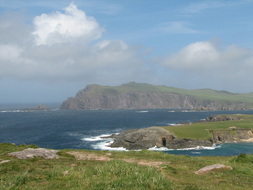 Every loving act done to alleviate the suffering of others and every loving act which brings joy transforms the world for those who receive as well as for those who give. If we truly follow the teachings of Jesus in the gospels then we will be led by the Holy Spirit to bring healing into our broken world. There is a great need for mercy and compassion, but if we look at the world with the eyes of love we can still see much beauty. It is so easy to get caught up in the brokenness around us that we can forget to see beauty. Yes, there is much work to be done, but there is also much for which we can be grateful. We will realize that life is indeed infused with the extraordinary if we ask to see with the eyes of Jesus and to love with His heart. We will see that no person is ordinary, nor is the time in which we live ever truly ordinary. Every moment is a precious gift and we do not want to squander even a second of it. If we see life in this way, we will be filled with gratitude, even in the times that are difficult, because we will know we are never alone. Everything is permeated with the presence of God. 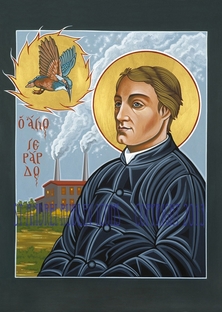 The poet Gerard Manley Hopkins, expressed this reality beautifully when he wrote that everything is filled with the grandeur of God.* In his poem he suggests that there is ‘a freshness’ within all that there is. This is the work of God, indeed. There is nothing which has been untouched since all was created by the hands of the Father. The Son gave us redemption, teaching us how to forgive 70 x 7 times, embodying mercy and compassion by consorting with the worst and the least of sinners, but all were sinners just the same. He died, rose, and opened the gates of Heaven for each and every one of us. In love the Father and the Son sent the Holy Spirit to continue the work of building the Kingdom. Absolutely nothing could ever be ordinary again after these great acts of love by God for us. Where God and His great love are, everything is transformed into a new creation. There is nothing ordinary about the way God loves and therefore there is nothing ordinary for the one who believes. May we allow the graces and the very wonder of every great gift of love given by the Father to work in us! May we welcome His Son, Jesus, who gave the great gift of His Body and Blood to us! May we be enlivened by the power of the Holy Spirit, that our hearts may be filled and our eyes opened, transforming us and sanctifying us! May we see the world and the people in it differently through the gift of the Holy Trinity, so that we see that nothing is ever ordinary, least of all the time in which we live out the gift of life! And may we see with the eyes of Jesus and love with His heart! Let us continue to meet in the Love which binds the Trinity, Father, Son, and Spirit, One God in Three Persons! Peace! ©Michele L. Catanese *The poem to which I referred is called God's Grandeur by Gerard Manley Hopkins. The entire text can be found here: http://www.poetryfoundation.org/poem/173660 The three photos are mine. The first was taken at a church in Sicily. The second is of the Gulf of Mexico taken in Orange Beach, Alabama. The third was taken in Ireland and is the Dingle Peninsula. The icon is Fr. Gerard Manley Hopkins The Poet's Poet, by Fr. William Hart McNichols. It can be found at http://www.fatherbill.org/all-categories/product/90-fr-gerard-manley-hopkins-the-poet-s-poet. 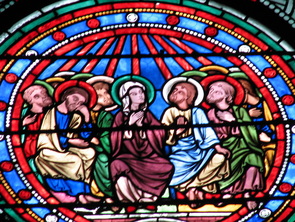 The Pentecost event was the birth of the Church. It was also the birth of faith, hope, and love in a new way. When the Holy Spirit came upon the apostles, Mary, and the 120 gathered in the Upper Room, the outpouring enlivened their souls and gave them all that they needed to help spread the message of Jesus’ love to the world as they had been instructed. The joy which accompanied that outpouring was beyond description as all of them came out of hiding, and in an extremely public way, began to proclaim the Good News in the very Temple area where Jesus was put on trial by the Sanhedrin and whisked away to His death at the hands of the Romans. The courage it took to come forth there was not even a thought for them, because the Holy Spirit supplied everything they needed in order to begin the ministry to which they were called. We can say that faith, hope, and love were born anew that day because 3,000 people cried out for baptism upon witnessing the Holy Spirit falling upon the apostles. It is at baptism that we receive these gifts. Therefore, as the group of believers went from 120 to over 3,000, the new Church was born, centered upon Jesus and empowered by the joy of redemption, salvation, and everything that Jesus had promised, all of which are based upon hope. Everyone who has entered into and risen out of the waters of baptism receives the incredible power of the gifts of faith, hope, and love. Much is said of faith and love, but hope is what has touched me when reflecting on Pentecost this year. It was hope that empowered the apostles to dedicate their lives to the ministry of sharing the Good News. Without hope in the presence of Jesus and in His message they would never have been able to go forth immediately into the same world which had been so hostile to Him, knowing they would be able to reach out to many. They knew that all He had promised had been fulfilled in His death and resurrection, and they understood that they had much work to do in building up the Body of Christ. It is this same hope with which we are empowered, and therefore we need to call upon it as we seek to grow in holiness and to share the Good News with all who we encounter. Our call is no different than that of the apostles and therefore we have been given the same gifts. 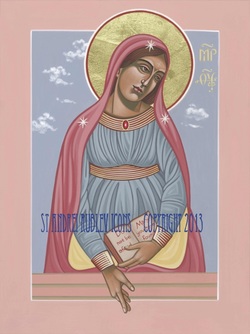 In order to really appreciate the power of hope released at Pentecost, let us focus on the experience of Mary, the mother of Jesus. She was with Jesus from the time of His conception, through His birth and childhood and into manhood. She loved Him and knew Him in a way no one else in this world ever could because only she was His mother. She had to let Him go when He embraced the mission of the dangerous life for which He came, the life of mercy and compassion in sharing the message of His Father. Mary observed His ministry in a world hostile to His message: Jesus taught and lived love, a love which flew in the face of hatred, illness, and lack of mercy. It flew in the face of the legalism of the Pharisees who could only see things one way, and who tried to draw many into league with them as enemies of Jesus. Mary watched as her Son was arrested, tried as a criminal, and punished in the most humiliating and public way by crucifixion. He was completely naked and alone, without any of His friends present, save His mother, one apostle and some brave women. For Mary the sorrow had to be nearly unbearable. 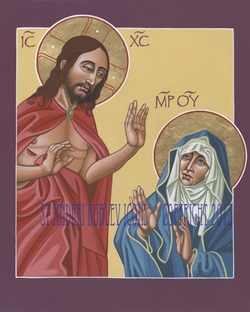 However, though Scripture does not report it there is a long held tradition that Mary was visited by Jesus immediately after His resurrection. Mary was the one who loved Him as unconditionally as He loved her; she had said yes to whatever God asked of her, something very costly to her own heart. The joy of that meeting must have been indescribable! However, in reflecting upon the Ascension and Pentecost I realized something no one ever talks about: even with the joy of seeing Him risen, Mary had to let go of Jesus yet again when He ascended. She would have to wait the rest of her lifetime to see Him again, just as any mother who loses a son or daughter, or anyone who has lost a loved one, has to wait until they are also called home to God before they will ever see that loved one again. Just as you and I have to wait to see Jesus until we die, and just as we have to wait to be reunited with the loves of our life, Mary had to wait for her own death in order to be reunited with her Son, too. Even after the joy of Pentecost, Mary had to rely on what He had promised. In all the years of the remainder of her life, there must have been a hole in her heart, so to speak, a longing to be reunited with her beloved Son who also happened to be her Lord. When Jesus said to the apostles, “I will be with you until the end of time,” He said it to each and every one of us. (Matthew 28:20) And so like Mary, and like His friends the apostles, we need to rely on the gift of hope in order to cope with the emptiness we feel when a loved one has passed away and gone before us, or the grief we feel whenever there is a loss in this life. The gift of hope is what sustained Mary and the apostles, it is what sustained the new Church as it was bruised and battered by the forces of their first century enemies, and it will sustain us as well. Faith, hope, and love come together for a reason, as they are intertwined in how they work. First, hope accompanies our faith. Faith helps us to believe that of which we have no proof but which we trust in our hearts. Hope is the acceptance of what our faith tells us. Hope is what helps us enter into pain and which keeps us from being overwhelmed by that which we suffer. Hope brings us joy when we realize that we are never alone because Jesus is with us and it gives us a way to focus on that which He promised, that we might hold fast to it as true. This same hope helps us to know our beloved dead are also present to us, nearer, in fact, than ever before. Hope helps us to know that they have already seen what we long to see and that they have already experienced the love of God beyond all telling for which we yearn so desperately. 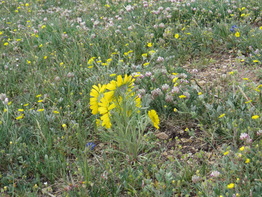 Hope also gives rise to compassion and mercy. If faith and love are hope’s sisters, so to speak, mercy and compassion are hope’s children. With hope our hearts are softened because we know that all will be made right by God in the end. Hope helps us to let our hearts be stretched so that we can look at the sorrows of our lives and not be moved to hatred, retaliation, or the refusal to forgive, but rather to mercy and compassion because we know we have needed mercy and compassion, too. Mercy and compassion teach us to recognize that all of us are wounded and in need of healing and therefore, “there but for the grace of God, go I.” The compassion born of hope helps us to be moved not just to share sorrow, but also to share great joy when we recognize the gifts of love we have been given through our friends and family. Hope, mercy, and compassion move us to acceptance and to gratitude. Just as Mary and the apostles were bathed in the grace and power of God at Pentecost, so too are we. Pentecost is the great gift of the love of God to us. As the Holy Spirit fell afresh on those who were gathered, they were overwhelmed with gifts and with a joy they could not contain. Sharing these gifts and the gifts that come with baptism was their response. They could not contain it. Therefore let us recognize that after Pentecost when the joy fades due to our humanness and the challenges begin to settle in, we have great gifts to which we can turn namely faith, hope, and love. Let us turn to the Holy Spirit and let hope be born afresh as on that first Pentecost, that it may continue to change the world even if one heart at a time.  May we cling to the hope we have been given as we yearn with Mary and the apostles for the day when we are all reunited in the Kingdom of Heaven and every tear is wiped away! May we allow hope to give rise to mercy and compassion so we may not only persevere, but that we can share what we have been given with the despairing, the hurting, the forgotten, and even the angry who themselves show little mercy! May we live with joy what Jesus taught us and what the Holy Spirit has enlivened in us! And may we share the gift of Hope which was born anew on Pentecost! Let us continue to meet in the heart of Jesus! Peace! ©Michele L. Catanese (This is dedicated to Sally, Kristina, Kevin, Jenna, and of course, to Jeff.) The first photo is mine. It is some stained glass depicting the Pentecost event and it is found in the Cathedral of Notre Dame in Paris. The two icons which follow are the work of Fr. William Hart McNichols. The first is Mother of Holy Hope and it can be found at http://www.fatherbill.org/all-categories/product/292-mother-of-holy-hope The second icon is called The Risen Christ Appears to His Mother and it can be found at http://www.fatherbill.org/all-categories/product/56-the-risen-christ-appears-to-his-mother  This week we celebrate the Ascension of the Lord. In some places it is still celebrated as Ascension Thursday and in others it is celebrated as the Sunday before Pentecost. While I like the more 'chronological/scripturally correct' feel of celebrating it on the Thursday which is ten days before Pentecost in union with how it actually took place, I see the value of having the feast on Sunday also. Not everyone can go to daily Mass, even on those holy days of obligation; but by moving it to a Sunday, everyone is able to celebrate this important feast day in which Jesus prepared the apostles for the coming of Pentecost by giving them their final instructions before He left them in the hands of His Holy Spirit. The Ascension is very important since it is part of the mysteries begun with the Resurrection. It teaches us much about the mission Jesus intended for those of us who would follow in the work of building up the Kingdom of God. In the Acts of the Apostles Luke wrote that Jesus took the apostles, to whom He had been regularly appearing after His resurrection, out to an area near Bethany. Jesus then instructed them to remain in Jerusalem because the event He promised (at Pentecost) would indeed be fulfilled very soon. He told them that they would receive a second, but different, baptism: “John baptized with water, but in a few days you will be baptized with the Holy Spirit.”(Acts 1:5) Jesus told them they would receive power when the Holy Spirit descended and this would enable them to become witnesses to the entire world. In other words, Jesus was reminding them that His work was only just beginning. His ascension was not an end, but it was the ushering in of the new age of the Holy Spirit, and they were to be the ministers of the mercy, compassion, and love which Jesus had brought into the world. They were to be His presence among the people, empowering others to do the same, bringing the faith outwards to His people.  What is very important in all of this is that we realize the power given to the apostles was not for them alone. It was to be shared. They were to empower others to leadership, that is, to ordain them with the powers they had received from Jesus and the Holy Spirit. Not only that, the Holy Spirit would be offered to all followers through baptism and what is now called confirmation. All of us were given access to other graces, too, which we receive through the sacraments and through prayer. In the act of ascending to the Father, Jesus was teaching the apostles that the Holy Spirit was going to be accessible to the world in new ways. Jesus accomplished the work of redemption and now His Spirit is doing the work of sanctifying. Each of us is similar to the apostles in that we have a mission and purpose in our lives. It may not seem like we are here to share our faith to the ends of the earth, but actually we are. Depending on how we have been called and the circumstances of our lives, we are to live our faith wherever we may be. Additionally, we need to recognize how important it is that we pray for one another in accomplishing that to which we have been called. We need apostles (bishops), presbyters (priests), and deacons as much today as they did in the first century. We need consecrated men and women to bring the message of Jesus into places where others of us may not be called to go. Yes, it is important that we pray for vocations, especially in this Year of Consecrated Life, but yet that is not enough. While prayer is (always) good, the Holy Spirit is counting on us to extend His invitation to those who may need affirmation in what they may have considered only lightly: choosing to live consecrated or ordained life. They may need that extra push to see what others may recognize in them. 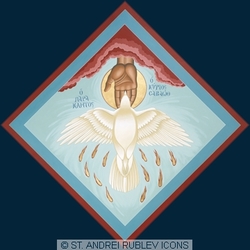 However, our prayer for vocations should not be reserved only for consecrated religious life and clergy. All of us have a vocation and each vocation is important. Those who are called to be married or single are to be witnesses no less than those in religious life. If we want people to be attracted to Jesus, we all need to love the way Jesus loves. We may be as eloquent as St. Paul, but if we do not practice the mercy and compassion that Jesus lived and taught, who would listen to us, leave alone want what it is we have? As St. Peter said when he healed the crippled beggar after Pentecost: “I have neither silver nor gold, but what I do have, I give you. In the name of Jesus Christ the Nazorean, rise and walk.” (Acts 3:6) We need to take what we have been given and enable others to ‘rise and walk’ in whatever way we can. This is not about trying to heal people physically, though we should pray for others whenever we can, but rather it is about unbinding them through works of mercy and compassion. All of us have access to a limitless share of this, (given us through grace), and it is worth more than silver and gold. We all need to spend time discerning a vocation, but after we choose, to never pray about it again makes no sense. Just as we celebrate the Ascension and the time leading up to Pentecost every year, this would be a perfect time to pray about where we are in living out our vocation. It is a good time to take our spiritual pulse and ask the Spirit to enliven us at Pentecost with a renewed sense of how to live out that to which we are called. We need to continually discern how we might be better disciples, how we may need to be more open to the Spirit for the gifts of mercy and compassion, especially toward those who we find difficult and pose a challenge to us. We need to reach out to those who are hurting or angry because they have been neglected or ‘under-loved’ who need mercy and compassion to heal their wounds so that they realize they are loved and loveable; and to those who are lonely and feel forgotten who need the mercy and compassion of loving acts of kindness done for them; and to those who are elderly, ill, imprisoned, or marginalized who need to know they never cease to have value in the eyes of God, and that they, too, are needed to build the Kingdom by their prayer, mercy, and compassion. If we do not share these things, how will anyone receive them and also pass them on? This is what Jesus asked of the apostles and it is what He is asking of us. We do not have to do anything that is outside of the area of life to which we have been called. Rather He calls us to share what we have been given, mercy and compassion, in the place where we are. We may have to reach a little outside of our comfort zone from time to time, but where love, mercy, and compassion are, Jesus is. 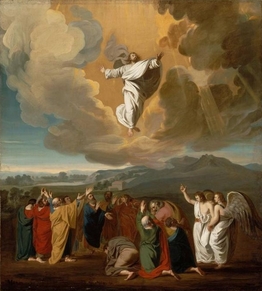 The Ascension, then, teaches us that we are to be the hands and feet of Jesus, sharing that which we have been given. Therefore, we need to sit with the Apostles and Mary in whatever is our Upper Room and discern anew how we can be ‘apostles’ of mercy and compassion in the land where we reside. We need to discern what this means for us in our daily living, to ask for mercy and compassion (forgiveness) from God which will release us from what holds us bound, and then we need to give what we have received as a gift. Our kindness is what touches people, and it is this gift which will soften hearts to the rest of the message of Jesus. Some will reject us, as they rejected Jesus before us, but we never know when one simple act of kindness can change a life. Let us be like the apostles following the instructions of Jesus: let us trust in the gifts we have been given, with an eye to Heaven, but with our hearts attuned to the Holy Spirit knowing that we are given great gifts to share. May we pray for all vocations, that men and women would answer the call to religious life and the priesthood; that those called to married and single life may understand that to which they are called and live out of the graces of the sacraments! May we continually discern how to live out our own vocation! May we learn from the ascended Jesus how to keep our eyes attuned to Heaven and our hearts attuned to the movements of the Holy Spirit! May we continue to pray for mercy, compassion, kindness, and peace to fall afresh on our world through the loving actions of the disciples of Jesus! And may we remember that we are never alone, but that Jesus is ever in our midst! Let us continue to meet in the Heart of our Risen and Ascended Lord Jesus Christ! Peace! ©Michele L. Catanese The first two photos are mine. They were taken in the Rockies of Colorado. The icon is The Holy Spirit, The Paraclete, The Lord and Giver of Life by Fr. William Hart McNichols. It can be found at http://www.standreirublevicons.com/all-categories/product/281-the-holy-spirit-the-paraclete-the-lord-and-giver-of-life Finally is a painting by Nicolas Poussin called Saints Peter and John Healing the Lame Man (1655). It can be found at http://www.metmuseum.org/toah/works-of-art/24.45.2  The gospel for this Sunday is one that has a special place in my heart. It was the gospel that my husband and I chose when we got married. We chose it because John 15:9-17 is a lesson in what love is: Jesus is telling His closest followers that love consists in the willingness to be so selfless that one would lay aside one’s own desires and the need to have one’s own ‘way’ to the point that we are even willing to lay down our very lives for the other. Love is not about getting an equal return from the other as if measuring a commodity, nor is it manipulative. Rather it is interested in whatever is best for the other. In a marriage, just as in all aspects of our lives, these are very important qualities, and therefore it is important to remember this teaching. This passage also reminds us that love is a gift from God. On the night on which He died Jesus told the apostles: “I have told you this so that my joy may be in you and your joy might be complete.” (John 15:11) That is, Jesus wanted to extend the joy of His relationship with the Father to His friends. Just as love must be shared to be love in the first place, the sharing of it causes joy. There can be no great love without great joy. Therefore Jesus was saying that it gave Him great joy to fulfill the covenant promised so long ago. He was choosing to die for all of us because of love. That He could share His obedience to the will of the Father, and that He could share this great gift of love with all of us, gave Jesus great joy. 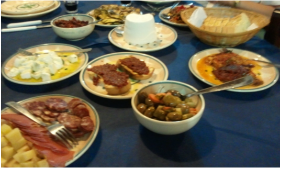 When I was young I was taught the virtue of sharing, especially in relationship to my brother. We willingly shared things given us because we were taught from a young age that this is what one does. But as I got older, I discovered that it was more than simply ‘the right thing to do.’ I realized that it was incredibly joyful to share the delight of whatever the gift was. To know that the other would also enjoy the gift did make everything more wonderful. Like much in the spiritual life this involves a paradox, (for example, death brings life). In mathematics when something is halved it means that you have less than you began with. But in sharing ones gifts, paradoxically the opposite is true: in dividing, the gift doubles. That is, instead of focusing on having less of the gift, the act of sharing it means that two are experiencing the joy instead of one, therefore the joy is doubled. This is what Jesus told the apostles He was doing in the act of loving them as friends. He said: “I have called you friends, because I have told you everything I have heard from my Father.” (John 15:16) He shared with His apostles everything He had, thereby increasing His own joy. This was not something they understood at the moment He told them, but they did come to understand it after He resurrected and then breathed on them (John 20:22) telling them to receive the Holy Spirit. Therefore when Jesus told the apostles that He commanded them to love the way He loves, He was not expecting perfection, but rather He was inviting them to share in the boundless depth of love He shares with the Father. It is truly an invitation to joy; if there is any command in Jesus’ desire for us to love it is that we remember to rely upon God. On our own, we are incapable of perfect love, but with Him we can love as He does. 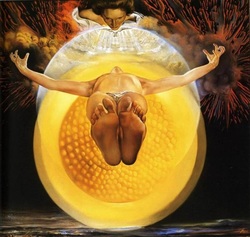 Jesus has also given each of us everything He has. When He died and rose, He invited each of His followers to share in the exact relationship He has with the Father. He began by empowering the apostles, but then He charged them with passing on what He had given them to the world, (Matt. 28:19-20). Jesus has invited each of us into His friendship which is an intimacy that is unlike anything we could imagine. Therefore, we too are called to share everything He has given us. This is why we look to His ascension, (to be celebrated in the coming week), and realize that He had to return to the Father in order to give us full access to the Spirit who will fulfill this promise. Accepting baptism then, means that we will indeed have every gift He has to offer us, from faith, hope and love, which empower us more than we realize, to every gift we need to nurture our own faith and that of those to whom we are sent. What He gives us is given to share, and in sharing, it grows exponentially. This is what building the Kingdom is about. From the beginning God has always been willing to go to the greatest of lengths in order to share the joy of His love with us. His message is that all of us are His children. No matter who we are, we are His: all are sinners, but loved more greatly than we can fathom. This message is seen particularly in the first reading on Sunday which shows us how the apostles responded to Jesus’ command to share this love. Peter, a devout Jew, went into the house of Cornelius, a Gentile, something which would render Peter ritually impure according to the Law of Moses. Peter was well aware of the Law, but instead he followed the command of Jesus and the urging of the Holy Spirit. In going to the house of Cornelius, Peter not only shared the message, but he did it with so much love that Cornelius and his entire household cried out for baptism. When they were baptized and received what Peter had, namely the gifts of the Holy Spirit, they experienced what is referred to as the second, or Gentile, Pentecost: they were filled with the joy which is beyond description that comes from being filled with the love of God such as the apostles and the gathered Jewish followers of Jesus had received earlier in Jerusalem. 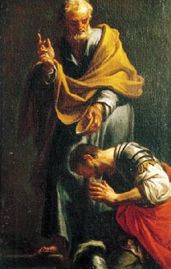 The apostles experienced first-hand that love shared is joy. Love given away freely overcomes fear, woundedness, anger, terror, self-centeredness, wickedness, arrogance, and whatever evil wants to throw at us. Love breaks down barriers, sometimes in one fell swoop and at other times bit by bit. Sometimes love is rejected by those to whom we offer it, just as Jesus was rejected by the people of His time. But in the end, love triumphs because out of suffering and death comes new life. The love of God is what helps us to persevere when evil seems to have the upper hand. Love does not come alone, however, but brings patience and trust to those who believe. Furthermore, love also ‘gives birth’ to mercy and compassion. Mercy allows us to forgive the evildoer or the cause of whatever it is that brings us suffering; and compassion helps us to persevere by entering into the pain and suffering of the other, thereby finding love in our midst. Our struggle to love and be loved is at the root of all we do. It should not be a struggle because God created us in love and freely gives His love to us always. Yet love is a struggle because we are broken, imperfect beings. We long to love and be loved, yet this brokenness makes it difficult for us to give and receive love the way we desire. We need to do all we can to learn how to let God’s love overcome that which has wounded us. He is the only one who can truly do so, since God is love. Therefore we need to seek love and ‘love’s children,’ mercy and compassion, which Jesus offers to us. We can seek and find these gifts through prayer. Prayer is not about what we do, it is about what God does. Therefore all prayer is an immersing in love, mercy, and compassion whether the prayer time feels fruitful or whether the time may appear empty. 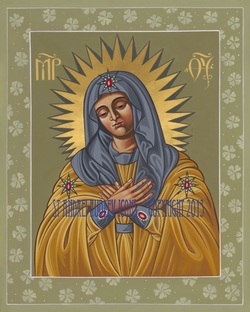 “In this is love: not that we have loved God, but that He loved us and sent His Son as expiation for our sins.” (1 John 4:10) Ultimately God is the one who judges and who forgives through mercy. It is not ours to worry about that. Instead our job is to extend His love to those around us through mercy and compassion so that like Cornelius and his household, there is a sharing of the joy which comes in knowing that we are one community and will continue to be one in the Kingdom of God forever. Let us give life to the love we have received by sharing this love through whatever small gestures we are able. That which we have received, we need to give as a gift, especially the gift of love and ‘love’s children,’ mercy and compassion. May we accept the invitation by Jesus to receive the gifts He offers freely! May we seek and find Him in prayer, opening ourselves to receive love, mercy, and compassion! May we be like the apostles who discovered that love shared doubles and brings great joy! May we accept the friendship of Jesus with gratitude realizing that He invites us into the same relationship He has with the Father! And may we reach out to others in love, mercy, and compassion, following in the footsteps of the apostles who reached out to the world courageously! Let us continue to meet in the Heart of Jesus! Alleluia! Peace! ©Michele L. Catanese The two photographs at the beginning of the entry are mine. Following the photos are two paintings. The first is The Ascension of Christ by Salvador Dali. (1958) The second is a painting called Peter Baptizing the Centurion Cornelius by Francesco Trevisani (1709). Finally is an icon written by Fr. William Hart McNichols called Umelenie, Joy of All Joys. It can be found by clicking here: http://www.fatherbill.org/all-categories/product/280-umelenie-joy-of-all-joys. I chose this specifically because Mary would have known more than just about anyone else about the joy of sharing all that she had received from her Son, Jesus.  Over the past two weeks my husband and I have gone to a different Mass at our parish church rather than the one which we usually attend. We have become accustomed to the Saturday night Mass and know many people there either by name or at least by recognition. It feels very much like home because we are used to the warmth of these people and the act of worshipping with them regularly. But attending a different Mass at our church these past weeks has brought blessings that were somewhat unexpected. Not only has it reminded me that we are part of a wider community, but as a result of being at a different Mass, we happened across two ‘milestone’ celebrations* involving friends and their families. I do not believe in coincidences, so obviously the Holy Spirit had something to teach. First, I was recognizing the joy of being able to be there with our good friends and their families. But the most important realization was the reminder that the entire community is an incredibly important gift. At the beginning of the Sunday liturgy, I caught the eye of my friend who was part of this morning’s ‘milestone celebration’ and I felt a wave of joy go through me. It was not just a happy feeling because we were sharing the event with these friends, but it was the joy of celebrating with our entire community. I felt joy because there was a great connection even though I did not know everyone who was in the church. I could not help but think of what it will be like in Heaven some day when we are celebrating God’s love and the joy of being with Him forever: we will be in connection with the entire community in a deeper, fuller way. I know our Church and its people are not perfect and I know as much as I enjoyed it, the liturgy we were celebrating was not perfect. I especially know that I am not perfect, not by a long shot. However, this is our community, our parish family, and it is part of the larger Body of Christ. Therefore, the Church is made holy by the love which holds us together, namely the presence of Jesus Christ. This love is what we celebrated at Easter and it is what we continue to celebrate throughout our lives. 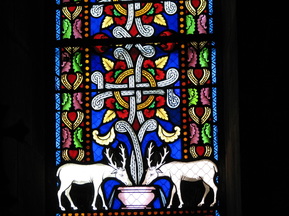 Community is indeed a gift. It is the fulfillment and perfection of this community for which we long, in fact. For those of us who are believers, we yearn to enter into the Kingdom of Heaven when we die so that we may be reunited with those who have gone before us, and as one Body, have everlasting life, worshipping and glorifying God, becoming fully who we were created to be. We will have all this, drenched in God’s mercy and love. Every time we come together at Mass or any service in which two or three are gathered in Jesus’ name, we are being given a foretaste of what is to come. But because we are human and all is imperfect, we can lose sight of this. For example, it is easy to become distracted by a banner on the wall because it is hanging a bit crooked or to detect a small ‘glitch’ that took place in the ritual. But in fact, that is part of why we are there: not to get stuck in our thoughts, but to realize that we are not perfect yet, and therefore we need this worship and we need this community in order to pray each other into the Kingdom. We are not there to simply receive the Word or Eucharist in some sort of vacuum. Rather we are there to celebrate the wonder of God’s unfathomable love and mercy, all while recognizing that it is because we are so imperfect that we need to come and be fed. It is not merely out of obligation that we come. Yes, it is our ‘Sunday obligation,’ but we are there because we love God and are grateful for all He gives us; we are there because we are in awe of the depth of His love and mercy; we are there because we need the wisdom and grace given in Word and Sacrament; we are there because we need our brothers and sisters such that we pray not only together, but for one another, and especially for those in the wider community and in the world; we are there because it inspiring to be with other people who are also working to grow in sanctity. We go to worship precisely because we need it to grow and thrive as Christians, inviting others into the community because we share the gift we have received. Besides, it is the one place we can go where nothing is asked of us. Rather, we give freely as we are receiving freely. 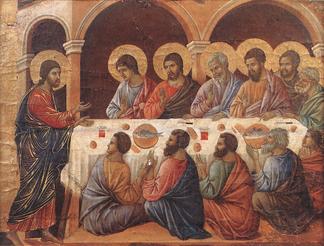 The apostles and early Christians were no different than we are in this respect. Ours has always been a church of imperfect people who hope to become sanctified. The apostles are an example of this. They were very ‘rough around the edges’ and had to continually grow in the ministries to which they were called and freely responded. They made mistakes and they had successes. They also had to learn the concept of community which was ingrained into everything Jesus did while preparing them to minister to the world. They were to be a community of believers united in one heart and mind sharing in a common task together. And it was easier said than done. But no matter what happened, they took to heart what Jesus taught them about being united through their common goal and in their joy in bringing others to Jesus. While often messy, it was done with love for one another and because they loved Jesus. In the Gospel for this week Jesus tells us that He is the vine and we are the branches. He is the source of our life and all the gifts we have to share, but we are the ones who must bear fruit. The vine sustains the branches, but it is the branches that do the bearing of fruit. Without our connection to one another we would be like a lopsided tree: one branch bearing fruit while the rest of the tree languishes. If that were to happen, the tree would not be very healthy and the one branch bearing fruit would be so stressed it might not survive. Therefore, as disciples we need to help each branch bear fruit. In other words, we need one another in order to grow and in order to build the Kingdom. Our attempts at working and worshipping as a community are no less messy than those of the early church, but if we try to work together, exercising the gifts of mercy, forgiveness, and compassion, we can help one another to sanctity and also work at healing that which is broken in the world. 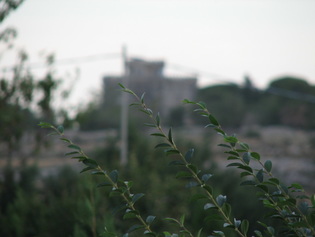 We have a lot of work to do. This is clear in our daily lives and in what we hear and see in the world around us. There are great rends in the fabric which interconnects all the children of God throughout the global community. There are wounds which we inflict upon one another because of our imperfection, selfishness, and sinfulness. We must not forget that once we leave the church building, we must carry what we have been given out into this world. That is, we must take the mercy, compassion, and love given to us by God though we are sinners, and live by these gifts, sharing them with others, who like ourselves, are quite imperfect. If we do not take what we share within the church outward into the world, we will lose the sense of larger community, therefore losing our sense of ministry to those who are in need. It is a huge challenge: our world can be as hostile to the message now as it was to the apostles. Like them, we may have to suffer a bit to make the message known. And even if the outside forces seem to be gaining momentum and overpowering us, we need to cling to Jesus and His presence in the wider believing community, asking for help in sharing love with the detractors and those who divide rather than unite. Yes, there is much work to do, but there is always hope. We know that the victory of Jesus is ours, even if we have to wait until the next life to fully enjoy it. The way to that everlasting life comes to us through the gifts contained in the gathered community where Jesus is always present. 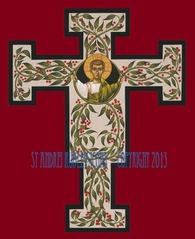 May we remember that our faith family, the Body of Christ, is a great gift because they are the ones closest to us through whom the Lord acts and speaks! May we lift up those who are down, share faith with those who are questioning, unite in building the Kingdom together, and participate in worship with gladness and joy! May we be grateful for the gift of our brothers and sisters in Christ, or faith community! May we persevere in the work of building the Kingdom with one another! And may we be steadfast in our faith in Jesus, that the community will one day be fulfilled and perfected with Him in Heaven forever! Let us continue to meet in the Heart of Jesus! Alleluia! Peace! ©Michele L. Catanese *What I mean by 'milestone celebrations' are events which are steps taken in the one's life which are sacramental or service oriented. The events for which we were present were a first Holy Communion and the recognition of a commissioning for a friend who is becoming a deacon. All the photos are mine. The first was taken in Nova Scotia, Canada. The second is of some stained glass in a church in LeMans, France. Following the two photos is a painting, Appearance While the Apostles Are At Table by Duccio di Buoninsegna (1260-1318) You can find more on this painting at http://commons.wikimedia.org/wiki/File:Duccio_di_Buoninsegna_-_Appearance_While_the_Apostles_are_at_Table_-_WGA06738.jpg Next is another of my photos. This plant with the castle in the background was taken in Sicily just outside Noto. Last is an icon by Fr. William Hart McNichols called Christ Emmanuel Flowering Cross. It can be found at http://www.fatherbill.org/all-categories/product/35-christ-emmanuel-flowering-cross |
Heart Speaks to Heart
|

 RSS Feed
RSS Feed

